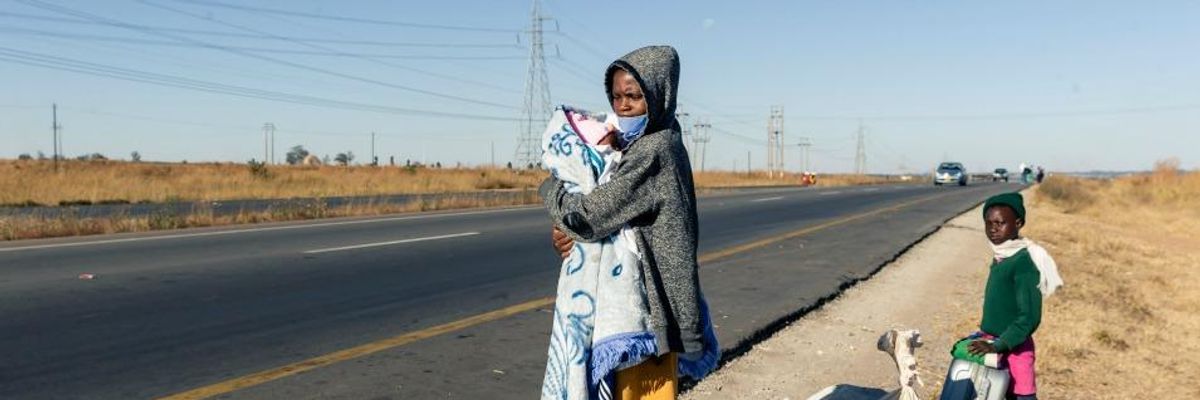Demanding "unprecedented social and economic measures" to cope with "unprecedented times," the United Nations Development Program called for a temporary basic income for 2.7 billion people living at or below the poverty line in more than 130 countries.
A temporary guaranteed income for the world's poorest people would significantly help developing countries to mitigate the spread of the coronavirus by allowing families to stay at home, the UNDP said in a report released on Thursday.
The measure would cost $199 billion per month, just 12% of the total financial response to the Covid-19 pandemic expected in 2020 and the equivalent of one-third of what developing countries owe in external debt payments in 2020.
"The UNDP has just released a strategy proposal to provide a temporary basic income to the 2.7 billion poorest people, to get them through the COVID-19 crisis. It's an excellent idea. My only suggestion: make it permanent."
--Jason Hickel, economic anthropologist
"The UNDP indicates that the basic income can be paid for in its entirety by reappropriating scheduled payments on external debts," economic anthropologist Jason Hickel tweeted. "The case for implementing this proposal is unimpeachable and world leaders should proceed immediately."
TBI would give poor families around the world the ability "means to buy food and pay for health and education expenses," the UNDP said in its report.
In developing countries where case numbers have risen in recent weeks, including Ethiopia, the Central African Republic, and Zimbabwe, seven in 10 workers earn their living in "informal" markets and have little access to government welfare programs. Many of the most vulnerable people who would be helped by a TBI are women, young people, refugees, and people living with disabilities, the UNDP reported.
The TBI proposal "offers realistic and practical pathways for developing countries to create or top up social protection," the program tweeted.
The UNDP proposed either adding to existing average incomes, implementing "lump-sum transfers linked to differences in living standards across a country," or using uniform lump-sum transfers to all residents of developing countries.
"The measure is feasible and urgently needed, with the pandemic now spreading at a rate of more than 1.5 million new cases per week, particularly in developing countries," the UNDP said in a statement.
The proposal mirrors measures that have already been taken in some countries, including Togo in West Africa. The federal government distributed nearly $20 million in monthly aid to more than 12% of the population after the pandemic began, and Spain will increase the monthly incomes of 2.3 million people following the recent passage of its monthly budget.
"Bailouts and recovery plans cannot only focus on big markets and big business," UNDP administrator Achim Steiner said in a statement. "A Temporary Basic Income might enable governments to give people in lockdown a financial lifeline."
While praising the TBI proposal, Hickel offered one suggestion to the UNDP.
"My only suggestion: make it permanent," he tweeted.




